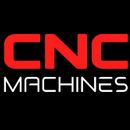Exploring the Roles of CNC Operators: Levels of Skill and Expertise

Exploring the Roles of CNC Operators: Levels of Skill and Expertise
The role of a CNC (Computer Numerical Control) operator is integral to modern manufacturing processes. As technology advances, the skill levels and expertise required in this field continue to evolve. In this article, we will explore the different levels of CNC operators and what it takes to become an expert in the field.
1. Entry-Level CNC Operator
For many, the journey in CNC machining begins at the entry-level. Here, operators handle basic tasks under guidance.
- Responsibilities:
- Loading and unloading materials.
- Monitoring machine operations.
- Basic setup of CNC machines.
- Following written instructions and specifications.
- Requirements:
- High school diploma or equivalent.
- Basic understanding of machining principles.
- Familiarity with measuring tools (calipers, micrometers).
2. CNC Machinist
CNC machinists possess greater expertise, capable of handling intricate tasks and working with various CNC machines.
- Responsibilities:
- Setting up CNC machines for production.
- Reading and interpreting blueprints and technical drawings.
- Making precise adjustments to tools and machinery.
- Performing quality checks on finished products.
- Requirements:
- High school diploma or equivalent, often with vocational training.
- Experience in machining or related fields.
- Proficiency in G-code programming.
3. CNC Programmer
CNC Programmers focus on creating and optimizing machine programs, ensuring precision and efficiency.
- Responsibilities:
- Developing and optimizing CNC programs for various machines.
- Conducting simulations to test programs.
- Collaborating with engineers and designers.
- Troubleshooting programming errors.
- Requirements:
- Advanced training in CNC programming.
- Strong understanding of CAD/CAM software.
- Experience with multiple CNC machines.
4. Senior CNC Operator or Lead CNC Machinist
Senior CNC operators or lead machinists take on supervisory roles, leading teams and ensuring quality production.
- Responsibilities:
- Leading a team of CNC operators.
- Overseeing machine setups and schedules.
- Conducting training for junior staff.
- Implementing quality control measures.
- Requirements:
- Several years of experience in CNC operations and programming.
- Leadership and management skills.
- In-depth knowledge of machining processes.
5. CNC Expert or Specialist
As a CNC Expert, individuals provide top-tier consultancy and innovation in CNC machining.
- Responsibilities:
- Providing expert advice on machining processes.
- Developing new machining techniques.
- Leading training programs.
- Collaborating with R&D teams.
- Requirements:
- Extensive experience in CNC machining and programming.
- Advanced technical education.
- Continuous learning in new technologies.
How to Become an Expert CNC Operator
- Educational Background: Obtain a high school diploma, follow with specialized training or a degree.
- Hands-On Experience: Begin as an entry-level operator and gain practical experience.
- Advanced Training: Pursue further training in programming and advanced techniques.
- Continuous Learning: Keep abreast with CNC technology trends and innovations.
- Develop Problem-Solving Skills: Enhance troubleshooting abilities.
- Mentorship and Collaboration: Learn from experienced mentors and collaborate with peers.
- Specialization: Consider specializing in particular areas of CNC technology.
By following these pathways, individuals can progressively advance from entry-level CNC operators to esteemed experts in the field, making substantial contributions to manufacturing efficiency and innovation.


